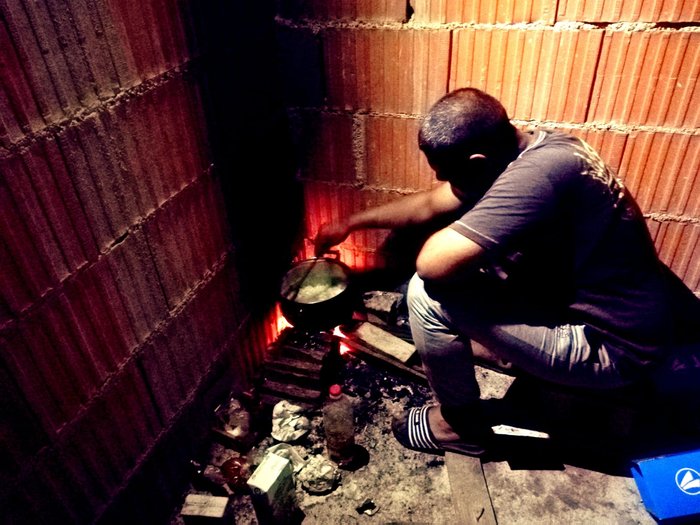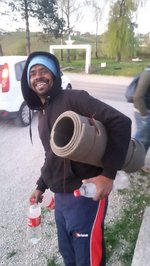
People seeking protection in an EU country often take months to get across the EU's heavily secured external border. Many die trying, some never make it. A lot of people are stranded at the border: men, women and children who try over and over again to cross the line and struggle to survive. That is where No Name Kitchen’s work comes in.

The organisation No Name Kitchen (NNK) was founded in Belgrade in winter of 2017. At that time, thousands of people were stuck in Belgrade after the Hungarian border was closed. A group of volunteers started cooking for the stranded people and supporting them with basic necessities. Since then, NNK has been assisting people who suffer from the lack of safe and legal routes into the EU for those seeking protection.
NNK believes that humanitarian aid must also include political action to provoke a change. For this reason, NNK collects testimonies on abuses and push-backs (illegal, forcible repatriation of people who have already been on EU territory) and co-founded the Border Violence Monitoring Network. The network aims to draw attention to human rights violations in the EU and at the external border and works to ensure that international laws are respected.
Currently NNK is working in the following locations:
Velika Kladuša and Bihać - Bosnia and Herzegovina.
Subotica and Šid - Serbia
Patras - Greece
Ceuta - Spain
No Name Kitchen sees itself as a movement that supports people who have left their homes in search of a peaceful and better future. On their journey, they are usually confronted with difficulties, violence and push-backs, especially at border crossings. NNK's work focuses on people outside the official reception centres, the so-called refugee camps. NNK does not speak of migrants in order not to create a distance to the counterpart, but calls the travellers "People on the Move" in the sense of equal contact.
Bruno Álvarez-Contreras, the founder of NNK describes it like this:
"In the community with the "People on the Move" we begin to see "The Game" that repeats itself every day. Crossing the border is what they call "The Game". They give it their all and try time and time again and are often caught by the police and pushed back. Then they come to us and tell us how they were beaten by the police and tell stories we couldn't believe. We just couldn't believe them. And then we started collecting all these little testimonies."
NNK documents the testimonies of people suffering violent repercussions and other forms of abuse. In border regions of Greece, Serbia, Bosnia-Herzegovina and Ceuta (Spanish exclave surrounded by Morocco), NNK has stationed teams of volunteers who try to support people with the most basic necessities. They provide first aid and cover the costs of urgently needed medical treatment for people who do not have access to health care.
NNK distributes food and kitchenware for cooking. In Bosnia and Herzegovina, NNK runs a voucher programme to enable people to shop.
Ricardo Fernández, Finance Coordinator at NNK:
"In Velika Kladuša, a small town in Bosnia, right on the border with Croatia, NNK has partnered with small local supermarkets. By phone they send vouchers to the people who can use them to go shopping according to their wishes. This is not only good and appropriate in terms of food choices, they see it above all as a contribution to people's dignity and freedom. No standing in line, but everyone can freely choose between lentils and rice or orange juice. The people who need support write a message and name the place of delivery. Then we put together the distribution and deliver the things.”